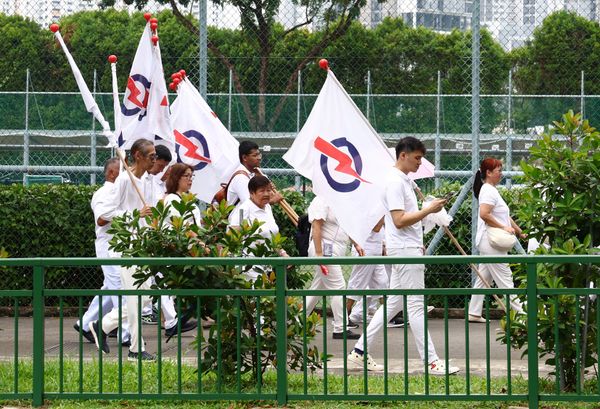SINGAPORE, May 1 — When 68-year-old Richard Han heads to the ballot box on Saturday (May 3) to vote in Singapore's election, cost-of-living pressures will be on the retiree's mind as he worries about his daily expenses and his son's prospects after university.
Financial consultant Catherine Tan also worries about the future for her two young children. The 30-year-old is finding it hard to make ends meet on a SG$5,700 (RM18,813.15) household income, especially when a specialist visit for her son's eczema can cost up to SG$300 (RM990.17).
"The prices of all other things increase, but our pay does not increase," said Tan, whose household income is below the city-state's median of SG$11,297 (RM37,286.35).
They are among 2.76 million voters going to the polls on May 3 as the threat of United States tariffs and a softening economic environment raises the risk of a recession in the city-state.
Singapore was named the world's most expensive city to live in for the second year in a row by international bank Julius Baer in a 2024 report on global wealth.
The ruling People's Action Party, led by Prime Minister Lawrence Wong, has won every election since independence in 1965 and is expected to win the most seats again.
But his party’s share of the popular vote will be closely watched, with many voters unhappy with his government's handling of issues.
Tan said she supports the PAP as they have responded to calls for more aid, and is hoping the government will give more support to families to help with childcare and medical bills.
Han thinks Singapore needs more opposition voices so the PAP would "think more for the citizens".
"If there were more opposition voices, they would listen more," he said.
According to an April poll by Blackbox Research of 1,506 people the government's ratings on 26 issues were at the lowest level, but still net positive, for its handling of cost of living (52 per cent), goods and services tax (55 per cent), inequality (57 per cent), car prices (58 per cent), and housing affordability (59 per cent).
"(The GST) is just getting higher and higher; we cannot make it go down. And then the daily cost of living – it is daily, you know?" said Han, who earns SG$8,000 (RM26,404.42) a month as a financial controller and worries he will not have enough from decades of working to fund his retirement.
He now lives off his savings, spending about SG$4,000 (RM13,202.21) a month.
In February, the Prime Minister, who is also the Finance Minister, announced what analysts called an election budget with a raft of goodies, including grocery and food vouchers, tax and utility rebates.
Han thinks the vouchers, meant to compensate for a two-percentage-point hike in the consumption tax, do not adequately address his worries, and his 22-year-old son will have an even harder time after graduating from university.
While the core inflation rate tapered to 0.5 per cent in March from a peak of 5.5 per cent in January 2023, suggesting an easing of price pressures, Tan said the daily reality was different.
The 30-year-old sometimes goes to nearby Malaysia to buy milk formula at about a third of the price in Singapore.
Single dad Abdul Rahman, 44, is also worried about his children, aged eight, 10 and 11, with his fixed costs already more than SG$2,000 (RM6,601.11) a month out of an annual salary of SG$50,000 (RM165,027). He said school fees already cost SG$400 (RM1,320.22) and he is not sure he can afford tertiary education for his children.
Housing also weighs heavily on his mind, as following his divorce, he had to sell his home and will soon need to find a new one for himself and his three children.
Singapore sells subsidised apartments to its newly married citizens, and Abdul can apply for an assistance scheme to get one, but there is a limit on the size of the flat.
He would have to buy from the open market if he wants a bigger flat, and the prices of those properties have climbed nearly 10 per cent in 2024, after an almost five per cent rise in 2023, according to government data.
"To get ample space on a single income is going to be very, very tough with the current prices," he said.
— Reuters




